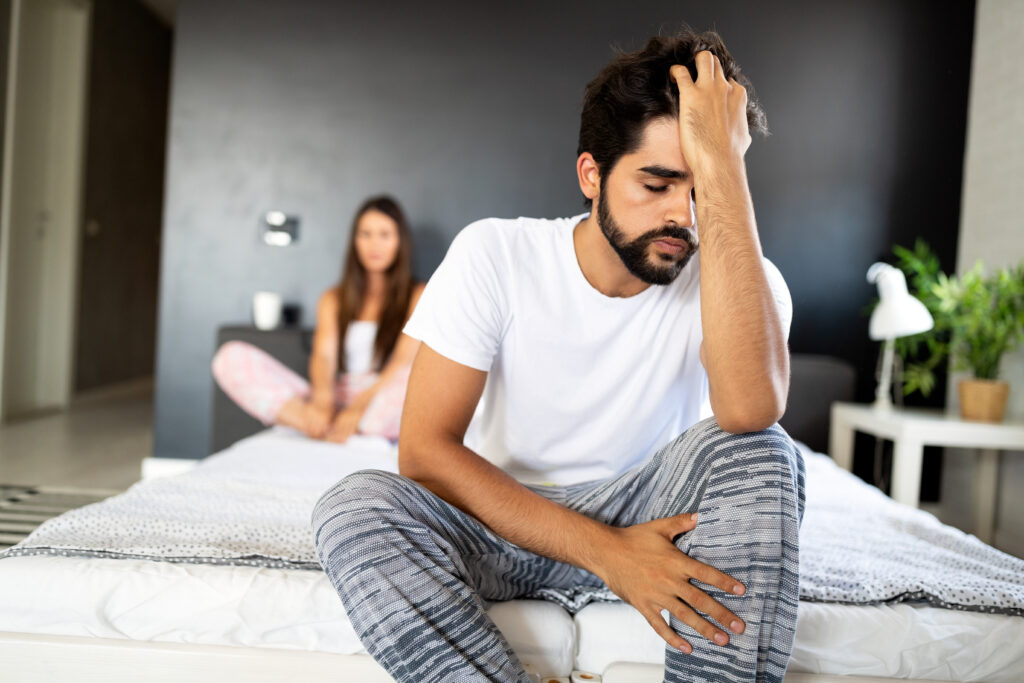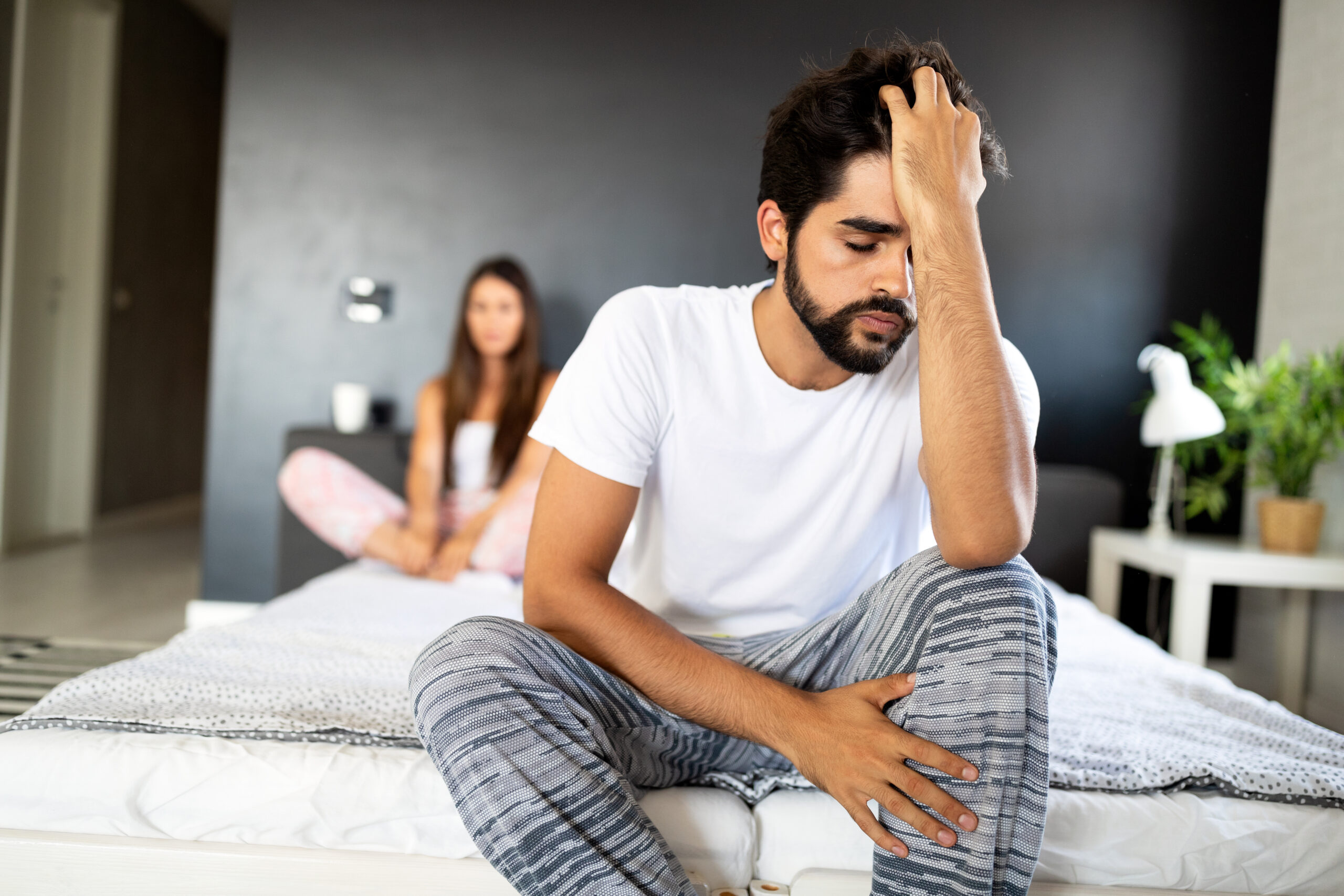
Sexual performance anxiety is a common yet often misunderstood experience affecting individuals of all genders and ages. It stems from the psychological and emotional pressures surrounding intimate encounters, leading to a cycle of stress and physical challenges. Let’s dive into the causes, impacts, and effective strategies for overcoming this issue, helping you reclaim confidence and satisfaction in your relationships.
What is Sexual Performance Anxiety?
Sexual performance anxiety refers to the fear or worry about one’s ability to perform sexually. This anxiety can overshadow the joy of intimacy, creating barriers to fulfilling connections with your partner. It often arises from self-imposed expectations or societal pressures, making it a complex issue rooted in mind and body.
Common Causes of Sexual Performance Anxiety
1. Fear of Judgment or Rejection
Many individuals worry about how their partner perceives them during intimate moments. Fear of being judged for appearance, abilities, or behaviors can intensify anxiety.
2. Past Negative Experiences
Previous instances of sexual dysfunction or negative feedback can create lingering doubts, leading to heightened self-consciousness.
3. Unrealistic Expectations
Media portrayals of sex often set an unattainable standard, leaving individuals feeling inadequate or pressured to meet these ideals.
4. Stress and Fatigue
Daily life stressors, including work and personal responsibilities, can reduce energy levels and increase anxiety, making it difficult to focus on intimacy.
5. Medical or Psychological Conditions
Conditions like erectile dysfunction (ED), hormonal imbalances, depression, or anxiety disorders often contribute to sexual performance anxiety.
The Effects of Sexual Performance Anxiety
1. Strained Relationships
Persistent anxiety can lead to emotional distance between partners, reducing communication and intimacy.
2. Physical Challenges
Men may experience difficulty achieving or maintaining an erection, while women may face reduced arousal or discomfort during intimacy.
3. Diminished Self-Esteem
A recurring cycle of anxiety and perceived failure can erode confidence, affecting overall mental health.
4. Avoidance of Intimacy
Some individuals may begin avoiding sexual situations altogether, fearing repeated instances of anxiety or disappointment.
How to Overcome Sexual Performance Anxiety
1. Open Communication
Talking openly with your partner about your fears and concerns can foster understanding and reduce pressure. A supportive and nonjudgmental conversation can create a safe space for intimacy.
2. Practice Relaxation Techniques
Deep breathing exercises, meditation, or mindfulness practices can help calm your nerves and refocus your mind on the present moment.
3. Manage Stress and Lifestyle Factors
Incorporate regular exercise, a balanced diet, and adequate sleep into your routine to improve overall well-being and energy levels.
4. Educate Yourself
Understanding the biological and psychological aspects of sexual performance can help demystify concerns and lower anxiety.
5. Seek Professional Help
Therapists or counselors specializing in sexual health can provide tailored strategies to address underlying issues. Medical professionals may also recommend treatments for any related physical conditions.
Lifestyle Changes to Boost Confidence
1. Exercise Regularly
Physical activity enhances blood flow, energy levels, and overall self-image, improving sexual health.
2. Limit Alcohol and Smoking
Excessive alcohol consumption and smoking are known to impair sexual performance. Reducing these habits can lead to noticeable improvements.
3. Strengthen Emotional Connection
Engage in activities that deepen your bond with your partner outside the bedroom. A strong emotional foundation often translates into more fulfilling physical intimacy.
When to Seek Medical Advice
If anxiety persists despite your efforts, or if physical symptoms like erectile dysfunction or pain during intercourse occur frequently, consulting a healthcare professional is essential. Addressing underlying medical issues can significantly improve your sexual health and reduce anxiety.
Conclusion
Sexual performance anxiety is a natural response to stress and insecurities, but it doesn’t have to define your intimate life. By understanding its causes, addressing its effects, and adopting practical solutions, you can break free from the cycle of anxiety and rediscover the joy of connection. Remember, seeking help and being open with your partner are signs of strength, not weakness.
FAQs
1. What triggers sexual performance anxiety?
Sexual performance anxiety can be triggered by fear of judgment, unrealistic expectations, stress, or past negative experiences. Medical conditions and psychological issues may also contribute.
2. Can performance anxiety lead to long-term problems?
Yes, prolonged performance anxiety can strain relationships, lower self-esteem, and lead to avoidance of intimacy. Addressing the issue early is crucial.
3. Are there medications for sexual performance anxiety?
While there are medications for related conditions like erectile dysfunction, addressing performance anxiety often involves therapy, relaxation techniques, and lifestyle changes.
4. Can mindfulness help reduce anxiety?
Yes, mindfulness practices can help you stay present, reduce stress, and improve focus during intimate moments, alleviating anxiety.
5. How can I support my partner with performance anxiety?
Offer reassurance, encourage open communication, and be patient. Building trust and understanding can help reduce pressure and foster a supportive environment.

